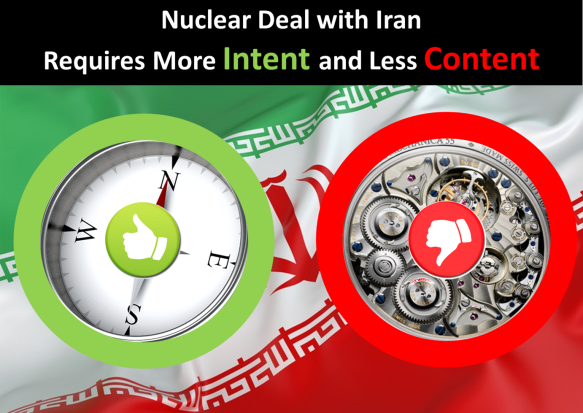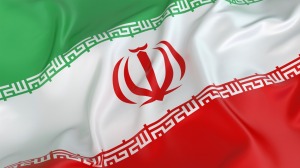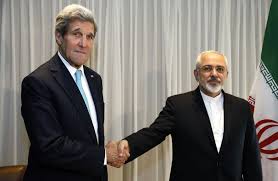
Last week, Bahrain stripped a Shiite Sheikh, Issa Qassem, of his citizenship, charging him with instigating an “extremist sectarian atmosphere and working to divide Bahraini society” and “follow(ing) foreign religious ideologies and political entities (Iran)“. There are rumors that Sheikh Qassem might be deported or even imprisoned but his fate is still unknown for now.
The reactions from Tehran were as immediate as they were definitely hostile and the internal issue of stripping a citizen of his citizenship quickly escalated into open calls from Tehran for a bloody revolution in Bahrain.
What makes Tehran’s position ironic is that it readily strips any citizen who is critical of the regime of his/her freedom, dignity, humanity and in some cases, life. Tehran likes to present itself as the supporter of the oppressed and as a champion of human rights while it tramples on the human rights of its citizens repeatedly. To add insult to injury, Tehran’s calls to open rebellion in Bahrain is not the first: It successfully supported Houthi rebels in Yemen to oust the government until Saudi Arabia intervened.
Bahrain’s decision on Sheikh Qassem may or may not be a political mistake by the government but what is certain is that Tehran’s efforts to “Export the Revolution” are definitely dangerous to the governments of its neighbors.
Tehran calls for a revolution
 In general, the reaction from Tehran is meant to fan the fires of a ground-roots revolution or even a coup d’etat:
In general, the reaction from Tehran is meant to fan the fires of a ground-roots revolution or even a coup d’etat:
Any way you read these lines, it is clear that Tehran wants to topple the government in Bahrain and is inciting the Shiite Bahrainis to do so. It should be remembered at this point that over the past few years, Bahrain reported several times that it has busted terrorist cells sponsored by Iran, cells which were meant to overthrow the government.
Tehran yearns to “export its revolution”
 It’s not hard to understand why the Iranians are upset: the majority of Bahrain’s population is Shiite while its government is a Sunni minority and Bahrain is openly aligned with Iran’s regional arch-enemy, Saudi Arabia. Last year, diplomatic relations between Iran and Saudi Arabia, and then with Bahrain, Kuwait, Sudan, Yemen and a host of others following the execution in Saudi Arabia of another Shiite Sheikh, Nimr al-Nimr, who was charged with inciting sectarianism and instigating terrorism.
It’s not hard to understand why the Iranians are upset: the majority of Bahrain’s population is Shiite while its government is a Sunni minority and Bahrain is openly aligned with Iran’s regional arch-enemy, Saudi Arabia. Last year, diplomatic relations between Iran and Saudi Arabia, and then with Bahrain, Kuwait, Sudan, Yemen and a host of others following the execution in Saudi Arabia of another Shiite Sheikh, Nimr al-Nimr, who was charged with inciting sectarianism and instigating terrorism.
Of course, had Sheikh Qassem and the majority of the population not been Shiite, there is ample reason to believe that Tehran would have not even commented on the issue but since Tehran has taken upon itself to “Export its Revolution” to as many “oppressed” people as it can, it is always on the look-out to support Shiites, whether they are majorities such as in Iraq, Lebanon and Bahrain, or whether they are minorities such as in Yemen, Syria and Saudi Arabia, or even when they are total outsiders such as in many Latin American or African states.
So, Tehran’s stand can be summed up in three goals: 1) Stand up for Shiite brothers wherever they may be, 2) Stand up for the human rights of the “oppressed” and 2) Spark and support a rebellion in Bahrain.
Seems quite simple and were Iran another country, a country with great human rights, a country not intent on “exporting a revolution”, a country such as Canada, Sweden or New Zealand, one might be tempted to cheer it on to save the poor Bahrainis.
But that’s not really the case: Tehran has been accused, rightfully, of meddling in its neighbors affairs – despite the fact that the Iranians pride themselves in not having started a war in two centuries, Tehran is now actively involved in the civil war in Syria (together with Hezbollah), in sectarian wars in Iraq (with Hezbollah and Shiite militias), in trying to overthrow the government in Yemen (through Hezbollah and Shiite Houthi rebels) and, of course, in supporting the Palestinian cause in Gaza-Israel (through Hezbollah, Hamas and a host of other organizations). Hezbollah is its key proxy and as Hassan Nasrallah aptly put it: “Hezbollah’s budget, its income, its expenses, everything it eats and drinks, its weapons and rockets, come from the Islamic Republic of Iran….As long as Iran has money, we have money… Just as we receive the rockets that we use to threaten Israel, we are receiving our money”.
The problem is that Tehran continues to deny any form of meddling and prefer to describe its military interventions as “helping” out at the request of its “friends”. The fact that its friend in Syria, Bashar al-Assad, represent a Shiite Alawite minority and that its friends in Yemen, the Houthis, are also Shiite minorities is inconsequential to Tehran. So, not only is Tehran meddling in its neighbors affairs, it isn’t, as in the case of Syria and Yemen, always on the side of the majority or even the rightful government.
Whether or not the Bahrainis had the legitimacy, or not, to strip Sheikh Qassem is a matter of debate and one can side for or against Bahrain. But what is certain is that Tehran’s calls for rebellion in Bahrain are illegitimate. Imagine if a neighboring country to yours would incite rebellion in your country – for example Argentina on Brazil, Thailand on Cambodia, Kenya on Uganda, Belgium on France, the USA on Canada, Russia on the Ukraine…it would be a “no-brainer”. If Saudi Arabia were to issue similar threats to Iran, war would be declared.
Tehran is treading a very thin line between trying to maintain a peaceful disposition meant to encourage foreign investments and global support while at the same time actively exporting its revolution to any country that may accept it.
Tehran is a serial human rights abuser
 But here’s the irony and the hypocrisy of Tehran’s stance on Bahrain: Much like the regime in Bahrain, Tehran isn’t open to criticism or national protests. During the 2009 elections, the “Green Movement”, headed by Mehdi Karroubi and Mir-Hossein Mousavi, called for reforms and more personal freedoms for Iranians. The outcome of the election was that Mahmoud Ahmadinejad was elected and the outcome of the elections was hotly contested by many politicians and mass protests. Needless to say, the protesters were rounded up, most were brutally interrogated, many were sent to jail (some are still serving time), some dies in protests or in jails and others fled Iran and visit Iran at the peril of being arrested for their past “crimes” (such as Nazanin Ratcliffe, the British-Iranian woman who returned to Iran to visit her family and is now in jail). Karroubi and Mousavi kept on hammering for reforms but they were ignored by the regime. Following the emergence of the Arab Spring in 2011, Karroubi and Mousavi called on Iranians to rekindle the protests and they were both promptly placed under house arrest, without trial, where they remain to this date.
But here’s the irony and the hypocrisy of Tehran’s stance on Bahrain: Much like the regime in Bahrain, Tehran isn’t open to criticism or national protests. During the 2009 elections, the “Green Movement”, headed by Mehdi Karroubi and Mir-Hossein Mousavi, called for reforms and more personal freedoms for Iranians. The outcome of the election was that Mahmoud Ahmadinejad was elected and the outcome of the elections was hotly contested by many politicians and mass protests. Needless to say, the protesters were rounded up, most were brutally interrogated, many were sent to jail (some are still serving time), some dies in protests or in jails and others fled Iran and visit Iran at the peril of being arrested for their past “crimes” (such as Nazanin Ratcliffe, the British-Iranian woman who returned to Iran to visit her family and is now in jail). Karroubi and Mousavi kept on hammering for reforms but they were ignored by the regime. Following the emergence of the Arab Spring in 2011, Karroubi and Mousavi called on Iranians to rekindle the protests and they were both promptly placed under house arrest, without trial, where they remain to this date.
The victims of the Green Movement are not the only victims to suffer for trying to change the regime. Thousands of Iranians were, are and will continue to be arrested, interrogated/tortured, imprisoned and executed for simply trying to do the same: The regime continues to crack down on artists (poets, musicians, caricaturists etc…), journalists (paid media, blogs, social media etc…) and activists (human rights, women’s rights, children’s rights, minorities’ rights, workers’ rights etc…) and even people in the fashion industry (models, photographers, make-up artists etc…) for simply not toeing Tehran’s strict Revolutionary Ideals. A caricature of Iranian MP’s as animals landed Atena Farghadani in jail for 12 years and 9 months (she was released on appeal after 18 months), a facebook comment by Sohel Arabi sent him to be executed (later diminished following his “confession”). Sometimes, the regime even gets creative as in the case of former president and reformist, Mohammad Khatami who is indeed free but is under a media ban which means that no media outlet can publish an article or a picture of him.
Zarif, who seems to be so worried about the “rights” of the Bahraini people is impervious to the rights of the Iranian people, rights that his president, Hassan Rouhani, promised to support during his election campaign. He promised to set Karroubi and Mousavi free, to allow more freedom of speech, to give equal rights to minorities etc…but these promises were discarded from the start and there is serious doubt that Rouhani can ever fulfil these promises. And herein lies the irony: Tehran is outraged that Bahrain would dare to strip a Bahraini of his citizenship for criticizing the regime but has no qualms about stripping Iranian citizens of their freedom, their dignity, their humanity and in some cases, their lives.
Whether Tehran understands the irony, is being deliberately hypocritical or is simply following a strategy to “export the revolution” is open to interpretation but one thing is certain, instigating a rebellion in Bahrain serves Tehran’s agenda.




























